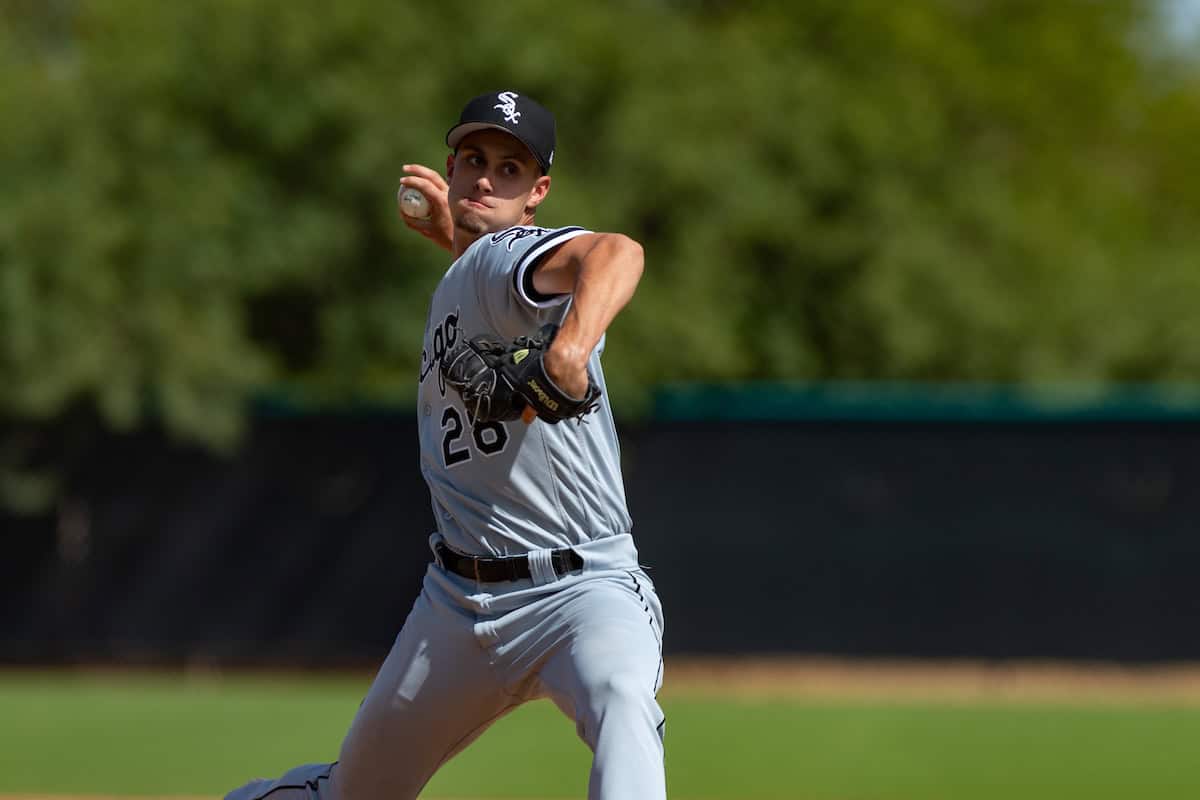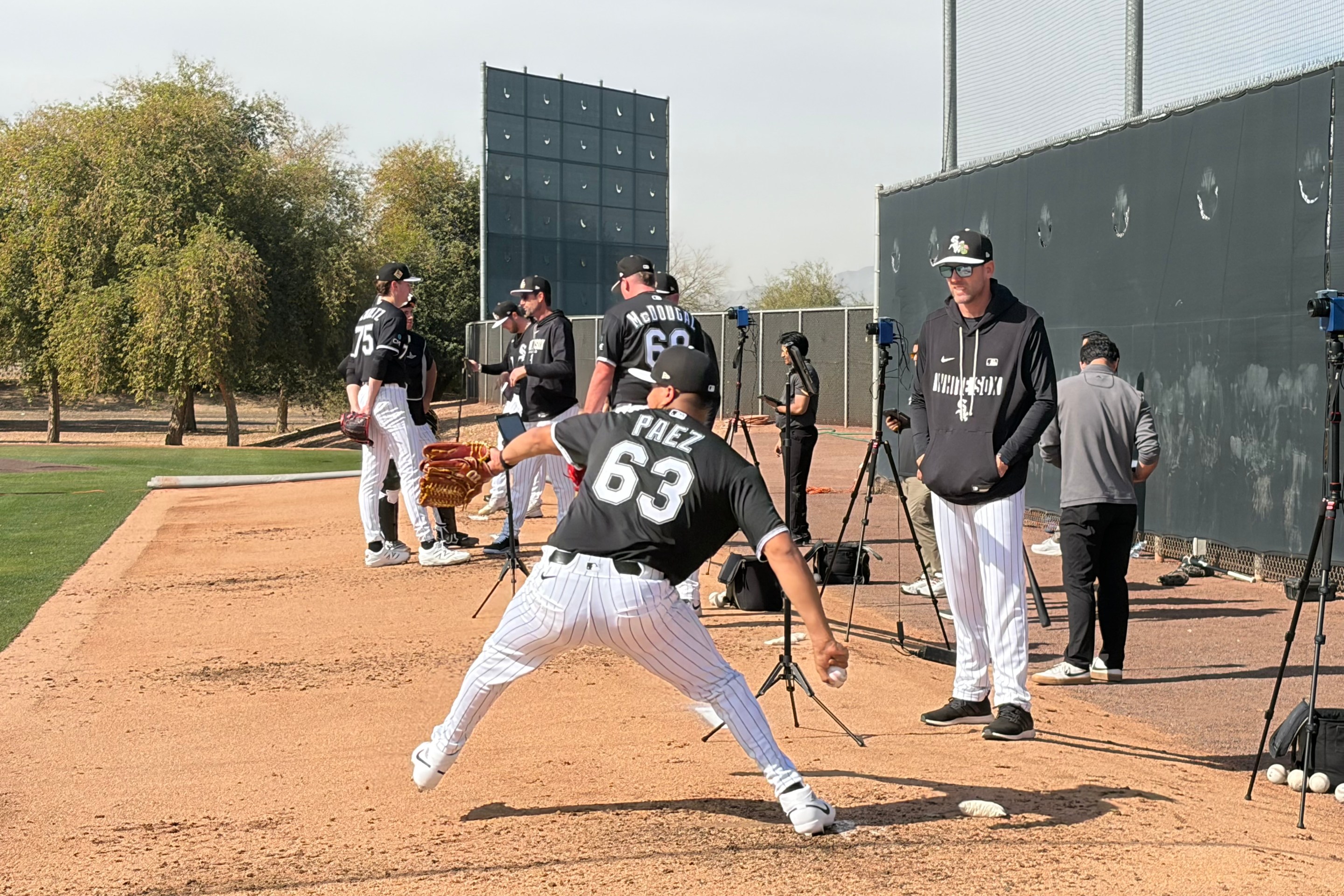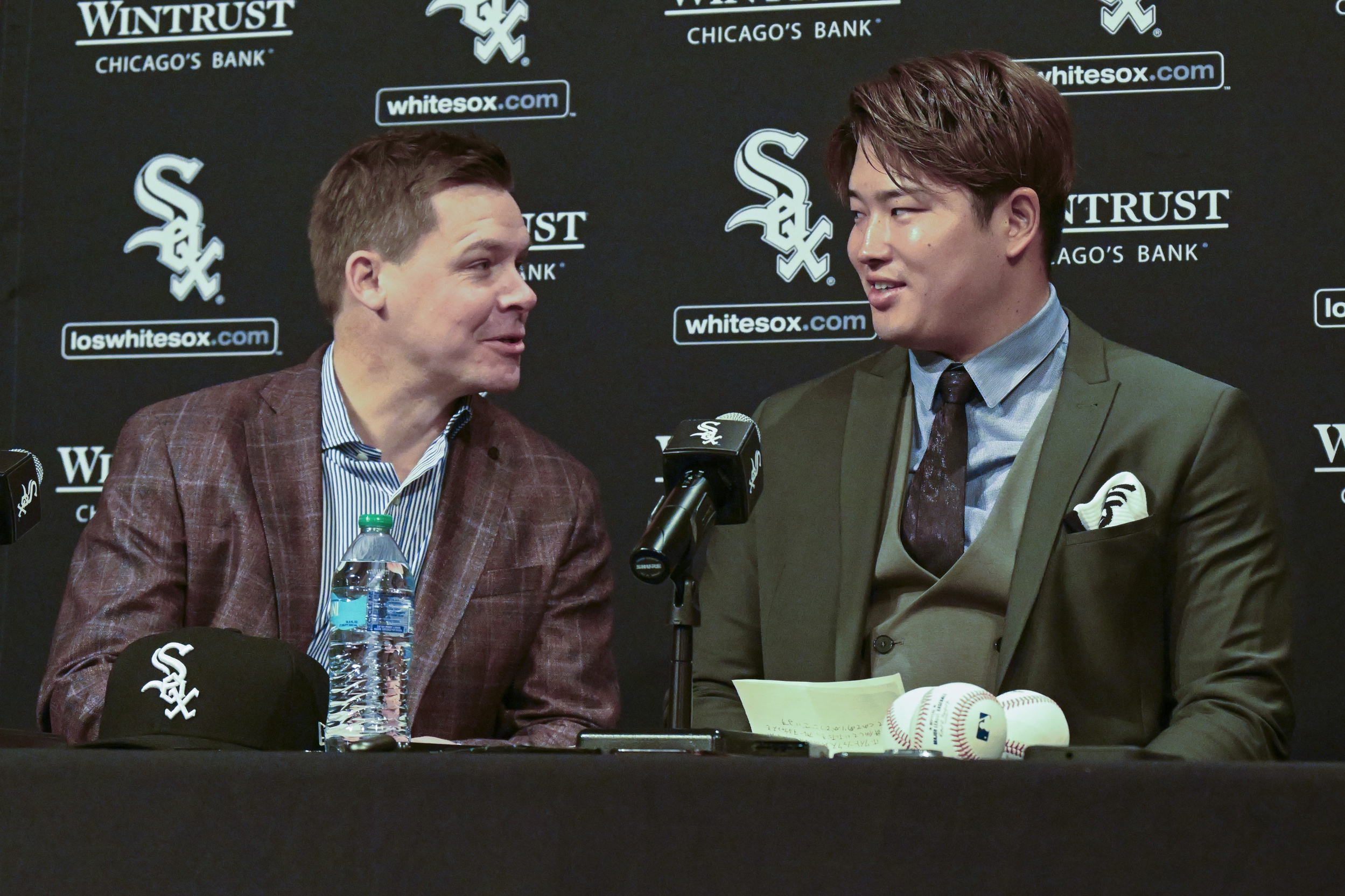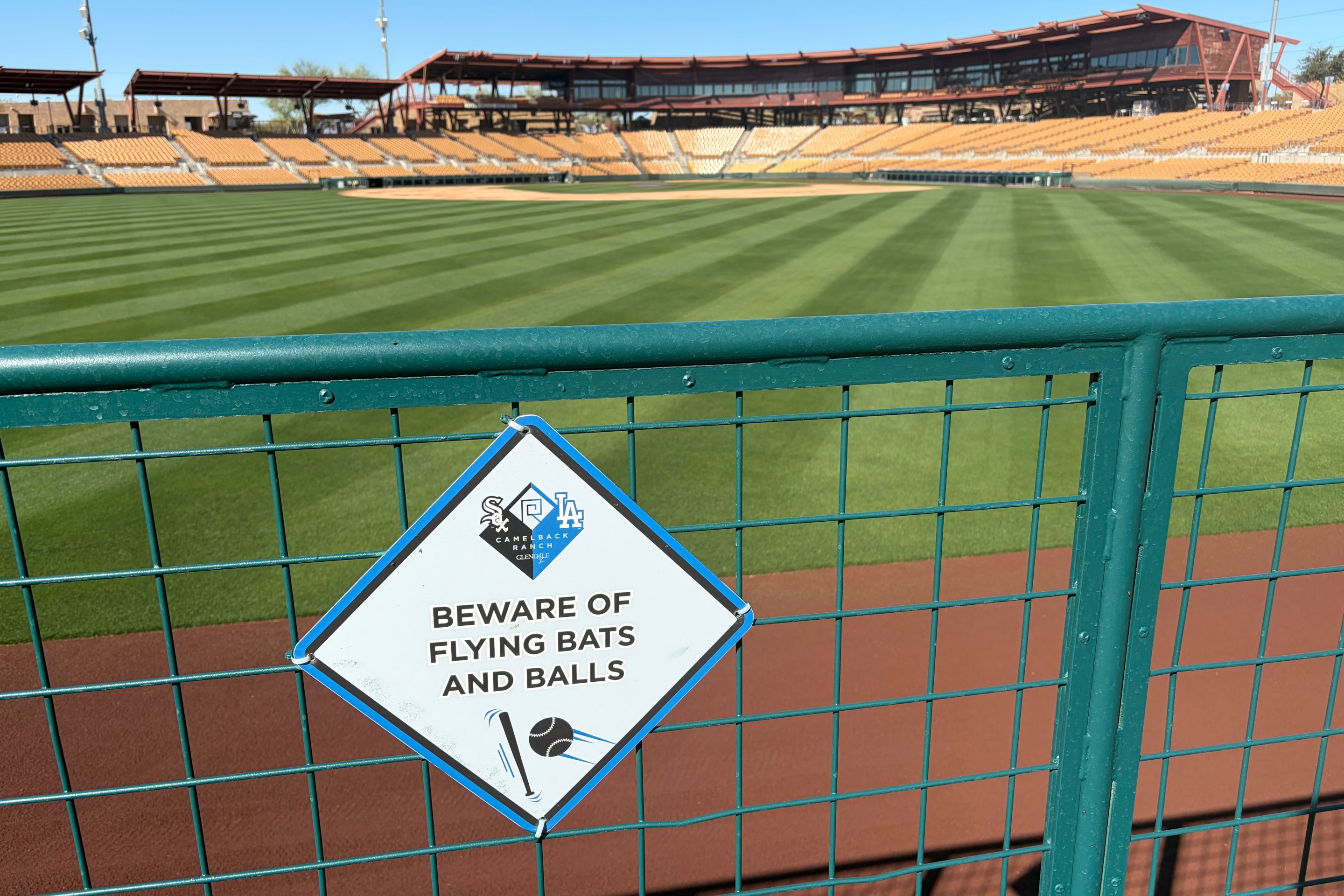PHOENIX -- I had already assumed it was pretty rare, but most of the time your interview subject is a bigger expert than you on the topic at hand.
"I would be the first," said White Sox prospect right-hander Mathias LaCombe. "There's never been a French player in the big leagues. The best French player got up to Double-A, that's like the record. I am excited. I want to be the first one. It's motivation."
Technically, Bruce Bochy has done pretty well in the game after being born to a military family in Landes de Bussac, but you get the idea. And to add another technicality, LaCombe's selection in the 12th round of last year's draft is a testament to White Sox and area scout John Kazanas' willingness to comb the junior college ranks in Arizona. LaCombe spent two seasons as not the first French-born player to star at Cochise Community College, which offered him a scholarship out of his academy in France that he compared to high school.
But LaCombe's French background is plenty apparent in other ways.
The accent of his home country is consistently present as he speaks. His pencil-thin mustache is striking and well-manicured. To top it off, I was introduced to him with the line "Meet ... LaCombe" while he was wearing a canvas hat that shrouded his eyes, lending him the air of a character in a John le Carré novel.
Every rehabbing pitcher at the team complex, operating apart from the shared rhythm that comes with being on a team, can seem like they're on their own secret mission. And LaCombe is still in the playing catch phase as he recovers a lat strain that was preceded by some shoulder impingement, before he gets a chance to see if his sinker-slider combination allows him to thrive as a starter. He estimates he's about three weeks away from appearing in games, but LaCombe isn't hating life at the team complex in general.
"It's pretty nice," LaCombe said. "When I was back at the academy in France I was already doing a lot of baseball. I had school in the morning, baseball in the afternoon. Now it's just baseball in the afternoon. It's kind of easier."
Back in his childhood days in Bordeaux, LaCombe recalled an event where representatives for every youth sport he'd ever heard of held a showcase to recruit kids to sign up. At 8 years old, LaCombe was already playing rugby, although not particularly taken with it. But he became intrigued by baseball. Initially, he loved the practice of tracking and hitting the ball, but eventually grew to enjoy pitching as well.
Occasionally growing up, there would be a random MLB game on television in France at some ungodly hour. Highlights were accessible on the internet, and one of the few moments where it's clear that LaCombe is not a native English speaker is when he asks if "condensed game" is the proper term for what he'd occasionally watch. But mostly, he did not watch baseball or have a superstar player he longed to one day be. He played the sport, loved it, and simply wanted to keep playing it. The resulting journey has brought LaCombe to the cafeteria on the minor league side of the White Sox team complex, on a particularly scorching June afternoon in Arizona.
"When I came to the US, I was like, 'This is getting pretty serious,'" LaCombe said. "I just left my family, my friends, my education in France to start something different in the US. I was like, 'This is baseball or nothing.' Because I'm not going to start university after two, three years in the US. It's going to be tough. So I was just all in on baseball and trying to get drafted."
After a dominant second season at Cochise during which LaCombe moved into the starting rotation and struck out 97 batters in 67⅓ innings amid a velocity spike to the mid-90s, he was indeed drafted. And since they gave him a $450,000 signing bonus -- hefty for a third day pick -- the Sox are betting on that being the tip of the iceberg. LaCombe had never seen his own Trackman data before entering professional baseball. Like fellow JUCO draftee and complex denizen Christian Oppor, joining the White Sox was his first experience with having pitch data inform adjustments in his game and ideally produce another leap in performance.
"It's pretty interesting, I can work with that to add depth and stuff like that," LaCombe said. "It's really nice to have that data and know what works. When I was in France and JUCO, it was more like feeling. Just throw the ball and, 'Hmm, this feels good, let's try to redo it.' It was all I had. They didn't even have radar to track my velo much. I was just asking the scouts."
LaCombe feels like his fastball always had natural run and sink to it, but seeing that play out in data led him and the White Sox to lean into the concept, leading to a grip change they hope will provide consistent action. He has thrown a sweeper in the past, but LaCombe is in the process of tweaking it to be sharper, less immediately identifiable and thus more versatile.
There is some natural rotationality in LaCombe's delivery that he's tried to address in a few different ways, with the White Sox trying to find cues that will enhance his glove-side command. With only catch play to work with at the moment, LaCombe is starting small.
"I'm just working on staying closed, not flying open with my lead leg," LaCombe said. "I like doing that, just staying closed and not opening my foot last second. It's pretty much all I've worked on, other than grips and intensity."
Maybe it's not all he's worked on. In one noteworthy aspect, the 22-year-old has already proven to be a quick study. He speaks English and Spanish in addition to French, and the way he talks about it will make you ashamed for neglecting your DuoLingo obligations.
"When I came to the US, I didn't really speak English, but I went two years in JUCO so I had to take classes in all that," LaCombe said. "I learned English like that and just being around Latin players all the time, I got to pick up Spanish too. It came kind of naturally, just being around it and hearing it all day. I didn't have anyone else to speak French to, so I had to learn English. And if I want to talk to the Latin guys, I need to speak Spanish."
LaCombe has just been doing what baseball asks of him, and it's already taken him pretty far.






